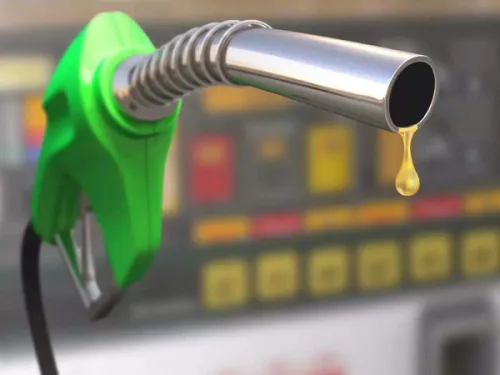Business
Kenya to Settle on Gulf Fuel Deal on Wednesday

The Energy Ministry is in talks with stakeholders in the industry about abandoning the government-to-government fuel import agreement struck earlier this year.
The agreement was supposed to relieve pressure on the dollar and provide Kenya with cheaper petroleum imports, but this has yet to happen.
Kenya published its first oil import tender under the new system in March, with the goal of reducing pressure on the foreign exchange rate by transitioning from settlement on delivery to 180-day credit.
The former arrangement allowed every retailer to participate, with the winner supplying the oil sector for two months and paying for the cargo in hard money within five days of delivery.
At the time of the transaction, the Kenya Shilling was trading at Sh128 per dollar, with the government expecting it to recover to approximately Sh115.
However, the shilling has continued to lose value against the dollar, reaching Sh145.2 on Monday evening.
Fuel prices have also risen, with Kenyans spending more than Sh194.68, Sh179.67, and Sh169.48 for Super petrol, diesel, and kerosene, respectively.
“Between today and Wednesday we are going to see how to go forward, do we continue with the G to G or do we go back to the spot market? These are the issues we are engaging with the Oil Marketing Companies,” said Energy and Petroleum Cabinet Secretary Davis Chirchir.
Chirchir, on the other hand, argued that the transaction has reduced the rate at which the Kenyan shilling has lost value.
“I think we have addressed the challenge of slowing down the shilling depreciation, who knows it might be at Sh180 or Sh200 today. What we want to address is do we continue with the agreement or do we allow a system that will be sucking $500 million from the economy every month?” said Chirchir.
The government came under fire from industry participants after July fuel imports were delayed and brought into the August cycle, causing Kenyans to pay up to Sh17 percent more.
Last week, National Treasury Cabinet Secretary Njuguna Ndung’u hinted that Kenya would withdraw from the government-backed fuel import credit scheme negotiated with gulf nations after the International Monetary Fund expressed concerns that taxpayers would face currency-related costs.
Ndung’u stated that the government would enable private sector participants to manage the plan, such as oil marketing corporations, banks, and credit insurance providers.







